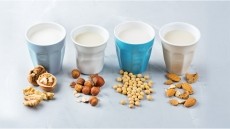UN denies granting coconut water patent to Philippines
denied reports that it has granted the first patent for processing
coconut water to the Philippines. Patenting of the technology has
been eagerly awaited as it is likely to provide a step into the $1
billion sports drink industry.
According to a report from the newswire service Asia Pulse, the patent was granted this week, making the Philippines the first ever grant to tap in on the technology.
However, Rosa Rolle, spokesperson from the FAO's Agriculture and Food Engingeering Technologies Service firmly denied the fact that any patenting had been passed for its coconut water technology.
"I can confirm that no patent has been offered for this technology to the Philippines or any other country at this point in time," she told AP-FoodTechnology.com.
In November 2000 the FAO reported that it had developed a cold sterilization technology that would allow manufacturers to bottle coconut water. Until then coconut water had proved to be a very difficult liquid to package, with its subtle flavour and nutritional characteristics often being lost in the process.
The process, which the FAO says was conceptualized in five minutes, is a relatively straight forward process. The coconut water is transferred into a refrigerated tank held at 6°C to avoid fermentation and enzymatic deterioration during further processing.
As in the wine and beer industry, a clarifying resin such as polyvinylpolypyrrolidone (PVPP) is then added to reduce the level of polyphenols and tannins and to improve the stability of the final product. The resin is then removed by a second coarse filtration. The liquid is then doubled filtered and can then be flushed with nitrogen before being aseptically filled into sterile containers.
Currently around 93 per cent of the world's 11 million hectares of coconut plantations are located in the Asia Pacific region. In recent years oversupply has dogged the industry, so the discovery of a means of aseptically packaging coconut water has been heralded as a major boost.
Coconut water is lauded for its low calorie and high nutritional content - characteristics that have made it increasingly sort after for the world's booming sports drink sector. Its high salt, sugar and vitamin content are said to make the ideal means for athletes to rehydrate, while providing a boost to nutritional requirements.
The Philippines is the world's third biggest producer of coconuts, behind leading player India and Indonesia.


















